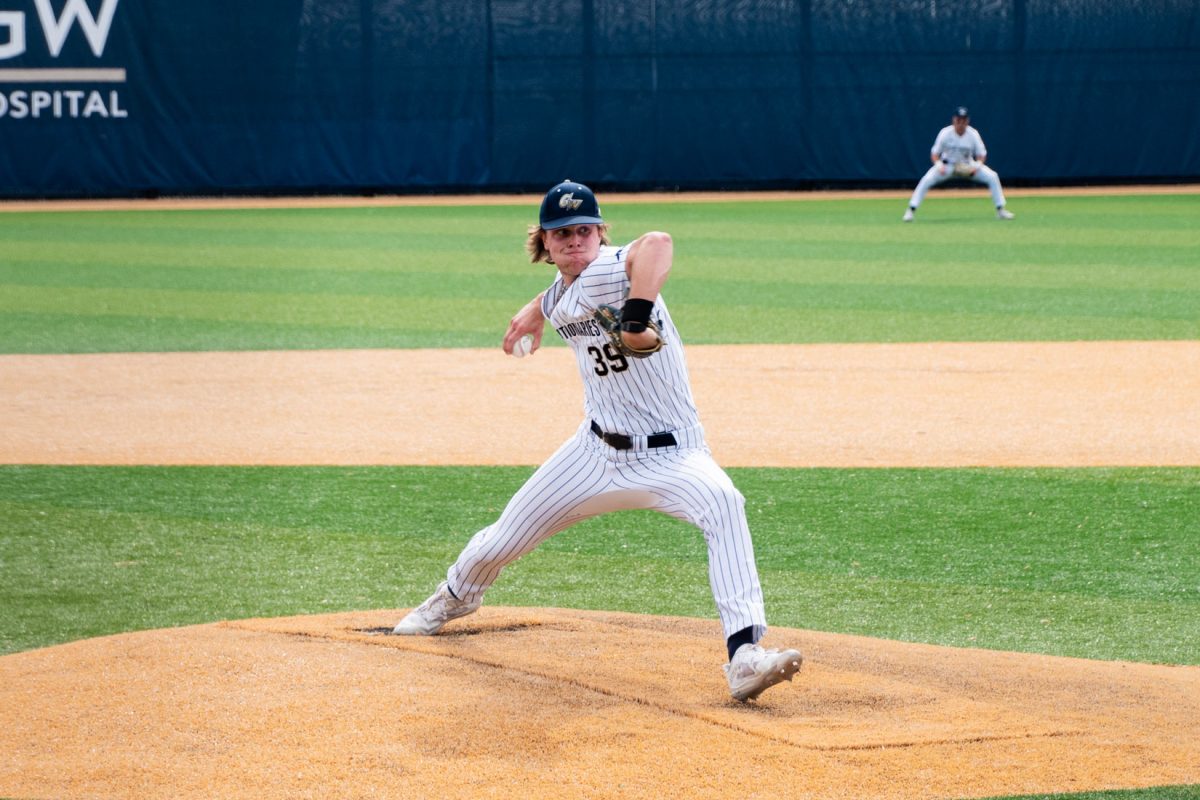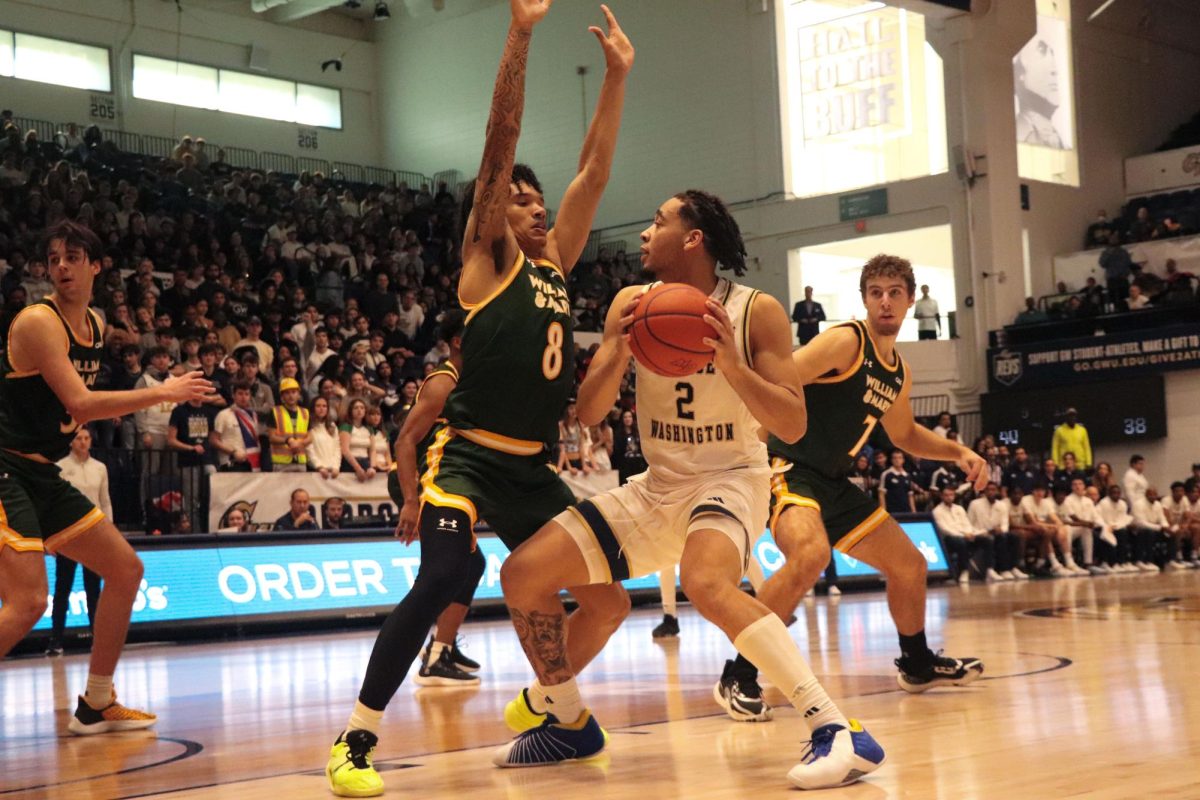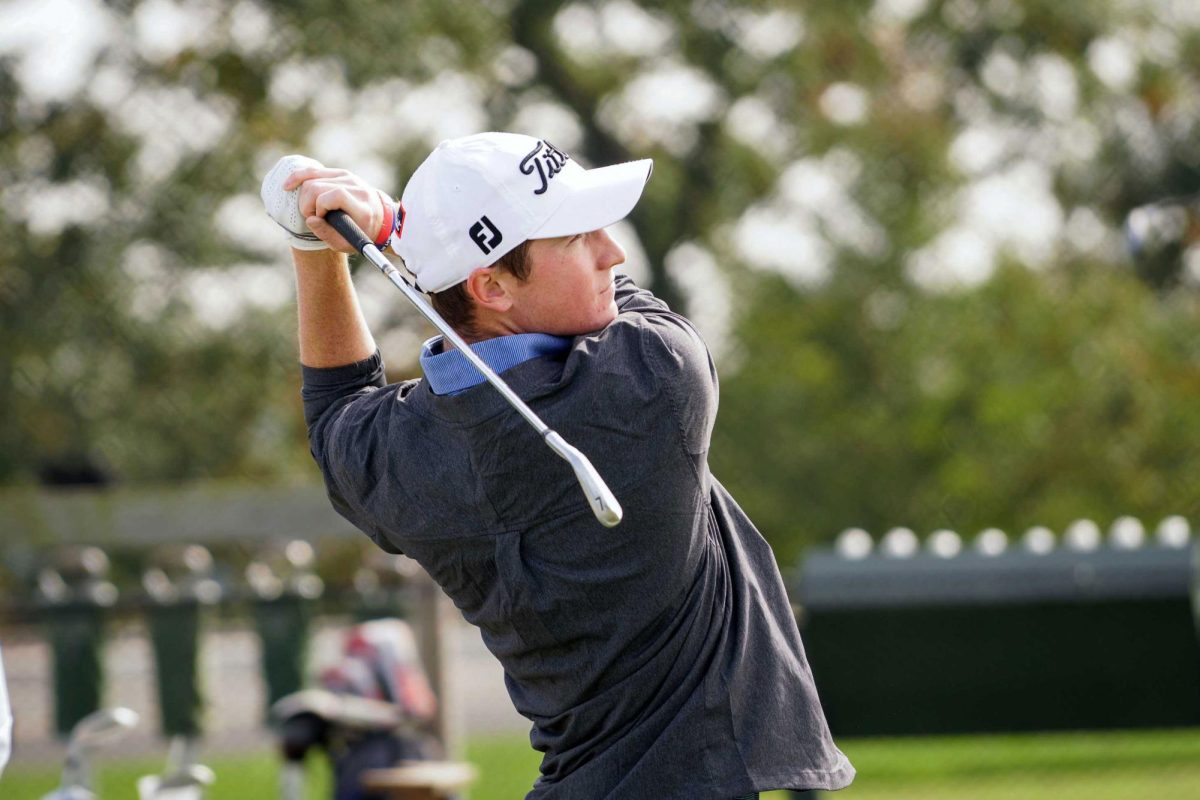If you have $45,000 to spare, you could have unprecedented access to athletic administrators to advise them on departmental policy.
Within the next two weeks, the University is planning to launch its largest athletic pledge drive in school history that will ask donors for an unprecedented financial commitment of $15,000 in three consecutive years, several administrators said. The gift will buy a seat on a council that is slated to meet with top athletic department officials three times a year. The council has been in the works for more than two years.
The council – dubbed the Athletic Department Advisory Committee – will likely be comprised of 12 people. Its agenda will include Atlantic 10 policy, scheduling strategies, national academic and athletic trends and renovations to Smith Center, Director of Athletics Jack Kvancz said.
The money raised will go directly to the planned $7 million, two-phase renovation of Smith Center, slated to begin after next year’s basketball season, Kvancz and Senior Vice President for Student and Academic Support Services Robert Chernak said.
The council, Kvancz said, will not have direct say on policy or decisions, but will add another voice to the his decision-making process. He likened the relationship to that of a head coach and their assistants.
“The buck still stops here,” Kvancz said. “I think if you want to be on the inside looking out, it’s going to cost you money.”
In the past, Kvancz said he has relied on three donors for advice. The advent of this council will eliminate this outside influence and rely on those who are willing to pony up big cash.
For a department hampered by small-money donors, the group’s money will provide resources for increased development for the 32-year-old Smith Center. The council will give donors – who are historically hesitant to give to the athletic department – a new “twist,” Kvancz said.
In its infancy, the plan still worries Kvancz and Chernak, they said in separate interviews. Chernak stressed that the group will not be a policy advisory body and emphasized that the Faculty Senate and Board of Trustees committees will continue to have oversight with athletics. Kvancz said the donors will comprise an advisory body but added that he will need to be upfront about the group’s purpose.
“You need to say upfront that this is an advisory board,” Kvancz said. “I want to be able to say that I told them how it would be. I will listen to their advice but I don’t know if I’ll necessarily take it.”
Peter French, the Lincoln Chair of Ethics at Arizona State University and the author of a book on ethics in college sports, also said the athletic department needs to be upfront about the role of the board. French said people who are giving large sums of money “are not stupid,” and if their opinions are ignored, they may not continue giving.
“If I were asked to give my opinion along with my money, and through a few years if my stuff wasn’t being acted on, I’d feel like I’m being ripped off,” French said. “The University may say they aren’t locked into what (the committee says) but they’ll have to show good faith upon acting on recommendations sometimes, if not more often than not.”
Alumnus Steve Hadley, a longtime season-ticket holder, said he thinks the plan shows the department’s willingness to try something new, but added that he thinks it will turn off the bulk of the boosters who donate a few thousand dollars a year.
“I hope they get 24 people, but I think they’ll get five,” said Hadley, who runs GWHoops.com, a Colonial-centric Internet message board.
Hadley said all season ticket holders should be able to talk to Kvancz about policy, not only donors who are able to spare $45,000.
Similar plans are not unusual in college basketball. Duke University has a 29-person athletics advisory board in which a large percentage of members are top donors, said Mark Carter, the assistant director of Duke Athletics’ fundraising organization. The group meets twice each year, once each fall and spring, to discuss the department’s multi-year development plans. NBA star Grant Hill, a Duke alumnus, is a member of the board.
Members are invited to ensure that a variety of perspectives are included and there is no required donation amount that ensures a spot on the board, Carter added.
“We would go to them with a plan and see what they think,” Carter said. “We’re lucky that we have a very varied group of individuals that make up our board, a lot of whom are in business and very successful.”
Carter added, “Our board is purely an advisory-type board for our athletic director and the rest of our athletic department to bounce ideas off of and get feedback on. It’s not a service-type thing.”
If GW’s plan fails and the program folds because members of the council become too overzealous, the University still raised a significant amount of money for Smith Center renovations, Kvancz said.
“The upside is dynamite,” he said.
The specific perks of the program, outside a seat on the council, include a “platinum” membership to the Athletic Director’s Club, a basketball booster group that dines before home games. Members will also be able to write an article in the GW athletic bulletin, which is released once every three months. Byron Kerr, the play-by-play announcer on Washington Post Radio, will also interview each of the 12 members on a halftime show during basketball season. Each member will also receive an all-expense paid trip to either the men’s or women’s NCAA tournament.







